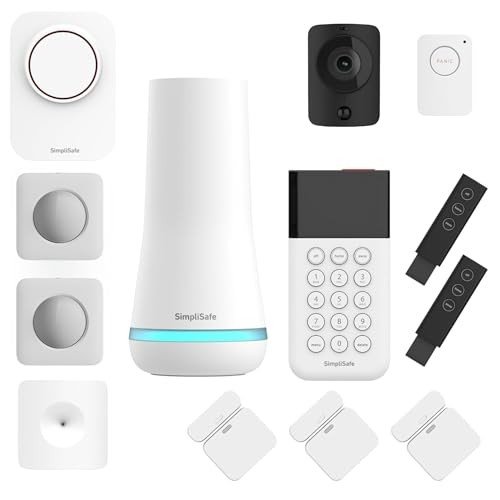5 People You Should Meet In The Traditional Lighting UK Industry

Traditional Lighting in the UK: A Comprehensive Overview
Traditional lighting holds a treasured location in the homes and public areas of the United Kingdom. With its capability to evoke nostalgia, beauty, and heat, traditional lighting fixtures use not just visual appeal however also useful worth. This post looks into the numerous kinds of traditional lighting typical in the UK, their history and development, popular styles, and how to include them into modern decoration.
A Historical Perspective on Traditional Lighting
The advancement of lighting in the UK has actually been comprehensive. From the flickering flames of candles and oil lamps to the advent of gas and electrical lights, the journey is as fascinating as it is enlightening.
Secret Milestones in Lighting History:
- Candles (Before 1800s): The earliest type of synthetic light, utilizing tallow or beeswax.
- Oil Lamps (Late 18th Century): These ended up being popular in homes and theaters, providing brighter lighting than candle lights.
- Gas Lighting (Early 19th Century): Revolutionized public and street lighting before electricity took precedence.
- Electric Lighting (Late 19th Century): Marked the transition to modernity, with incandescent bulbs slowly replacing older kinds.
Each of these developments led the way for traditional lighting, which still incorporates ancient strategies into contemporary styles.
Types of Traditional Lighting
Traditional lighting can be classified into numerous unique types, each with its distinct characteristics.
1. Chandeliers
Chandeliers are frequently the focal point of a room. They can be found in numerous styles, from elaborate Victorian designs to easy, rustic designs.
Popular Features:
- Crystal decorations
- Iron structure
- Various bulb types
2. Wall Sconces
Wall sconces supply both artistic style and soft lighting. They can be utilized in corridors, living rooms, or restrooms, improving the environment of a space.
Common Styles:
- Candle-style sconces
- Brass or iron fixtures
- Vintage-inspired styles
3. Table Lamps
Table lamps embody the versatility of traditional lighting as they can suit any room. Varying from basic styles to elaborate pieces, they are perfect for reading nooks, side tables, or desks.
4. Floor Lamps
Comparable to table lamps in design and function, floor lamps can develop cozy corners in a home. Vintage designs often consist of tripod bases or intricate patterns.
5. Lanterns
Though typically associated with outdoor settings, traditional lanterns can likewise be used inside for a rustic touch. They can be found in various products consisting of wood and metal.
Incorporating Traditional Lighting into Modern Decor
In a world increasingly leaning towards minimalism and modern styles, traditional lighting still holds its ground. The secret is to keep a balance. Here are some ideas for incorporating traditional lighting into a contemporary home:
1. Mix Styles
Combine traditional lighting with modern furniture to develop an eclectic room. For example, a vintage chandelier can be hung above a smooth table.
2. Usage Dimmer Switches
To manage the atmosphere, install dimmer switches that allow for soft lighting, which matches both traditional and modern interiors.
3. Choose Mixed Materials
Select lighting fixtures that integrate different materials, such as a wood lamp with a metal or glass base, to bridge the space between old and new.
4. Highlight Architectural Features
Use traditional fixtures to highlight special architectural functions in your house. For instance, hanging a vintage lantern in a hallway with exposed brick improves its rustic appeal.
5. Include Natural Elements
Choose designs that integrate natural products such as wood or wrought iron. These aspects tend to blend well with modern decor while maintaining a traditional flair.
Table: Comparison of Traditional Lighting Types
| Lighting Type | Description | Common Materials | Common Settings |
|---|---|---|---|
| Chandeliers | Decorative ceiling fixtures, typically elaborate | Crystal, metal | Dining spaces, ballrooms |
| Wall Sconces | Installed fixtures that offer ambient light | Brass, iron | Hallways, living rooms |
| Table Lamps | Portable lamps for tables and desks | Glass, ceramic | Bedrooms, workplaces |
| Floor Lamps | Standalone lamps for corner lighting | Wood, metal | Living spaces, dens |
| Lanterns | Rustic or vintage source of lights | Wood, metal | Patios, gardens |
Regularly Asked Questions
1. What is traditional lighting?
Response: Traditional lighting refers to light that embody historic or timeless designs, often identified by the usage of ornate materials, elaborate patterns, and a warm aesthetic.
2. How can I maintain traditional lighting fixtures?
Response: Regular cleaning and occasional deep cleaning are vital. For Buy Kitchen Lighting UK with glass or crystals, use a mild glass cleaner. For metal parts, guarantee you utilize suitable cleansing solutions that won't harm the surface.
3. Are traditional lighting fixtures energy-efficient?
Answer: Many traditional fixtures can accommodate modern LED bulbs, which provide better energy effectiveness. Constantly examine compatibility when switching to LED choices.
4. Can I blend traditional lighting with modern style?
Response: Yes, blending traditional lighting with modern design can create an uniquely welcoming area. Balance is critical; select complementary designs to keep visual harmony.
5. What is the best way to choose traditional lighting for my home?
Answer: Consider your home's total design, the function of the area, and personal taste. Take measurements to guarantee proper sizing and choose products and colors that harmonize with existing decoration.
Traditional lighting works as an enduring link to history, workmanship, and aesthetic appeals, proving that ageless styles have their rightful location, even amid progressing patterns. Understanding the different types of traditional lighting and their application can assist house owners produce welcoming areas that reflect both elegance and warmth, perfectly blending the past with the present.

